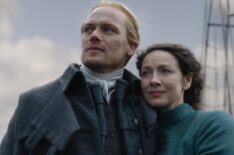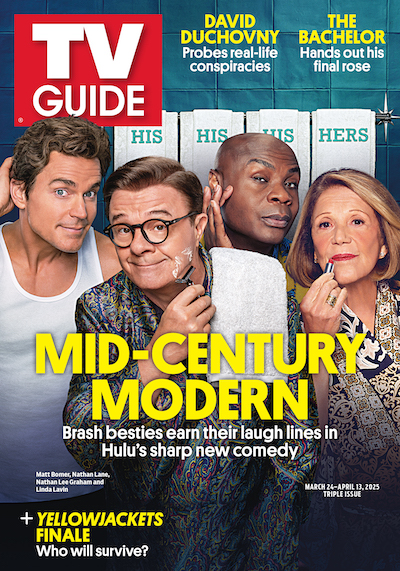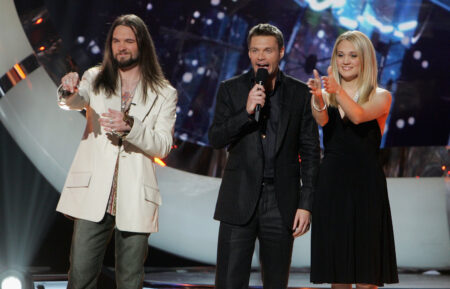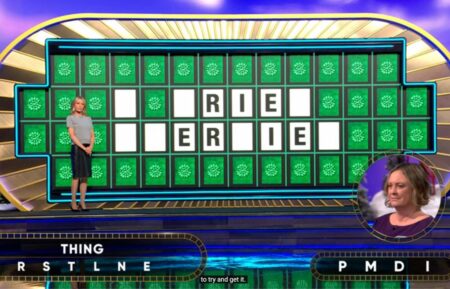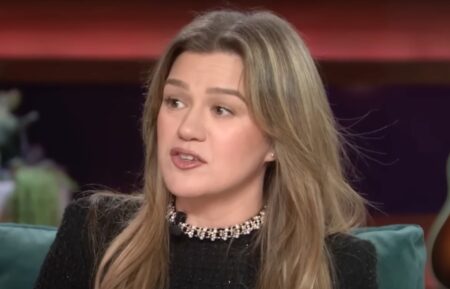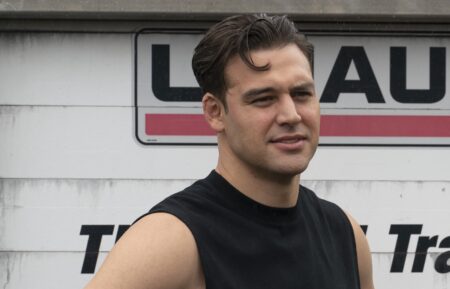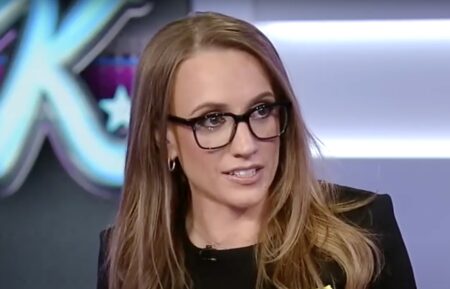‘Rebus’: Richard Rankin Dishes on Gritty New Cop Series & Teases ‘Outlander’ Drama
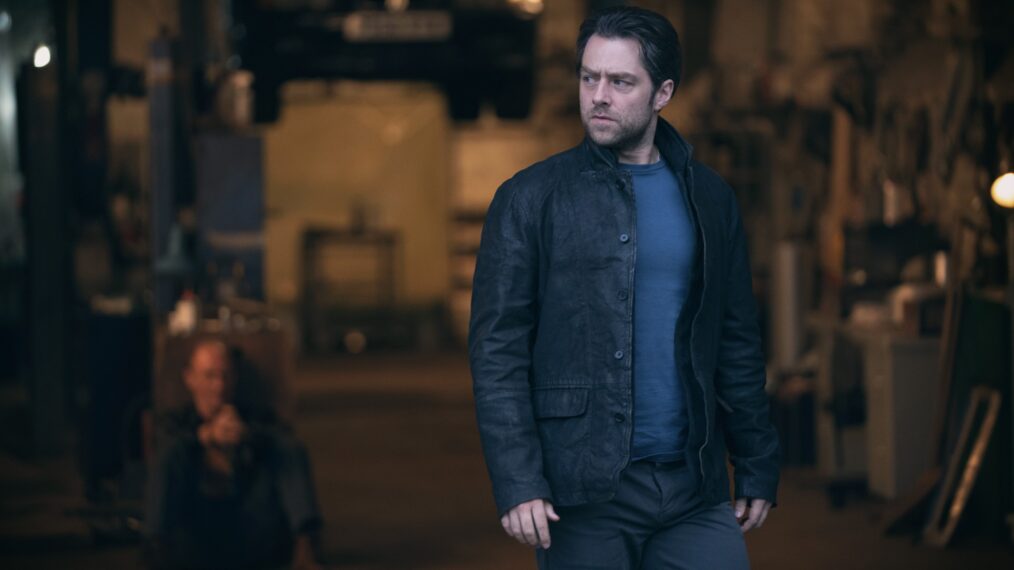
Q&A
As Outlander moves ever so closer to its final chapter, Richard Rankin has already begun venturing out with a gritty role. The Scotsman steps into the world of Rebus, a reimagined adaptation of Sir Ian Rankin’s (no relation) best-selling novels. Rankin, the actor, plays the titular character John Rebus as a younger Detective Sergeant in present-day Edinburgh.
When we first meet him, he is demoted after an incident with mobster Ger Cafferty (Stuart Bowman) and finds himself at a career crossroads. His personal life is also a mess engaged in a toxic affair with the wife of his disabled former police officer partner and mentor. Rebus sees himself relegated to the background of his daughter’s life by ex-wife Rhona Moncrieffe’s (Amy Manson) wealthy husband. This all gets him questioning where he belongs as a police officer and dad.
A brazen daylight attack draws Rebus and his new partner Detective Constable Siobhan Clarke (Lucie Shorthouse) into a gang war. Things escalate when his brother Michael (Brian Ferguson) steals from drug dealers to provide for his family. Rebus then finds himself torn between protecting his brother and enforcing the law to bring him to justice. Can he maneuver through these shades of gray?
Before Rebus makes its anticipated U.S. streaming debut, we caught up with Rankin. The star also opens up about leaving Roger in the rearview and Outlander nearing its end.
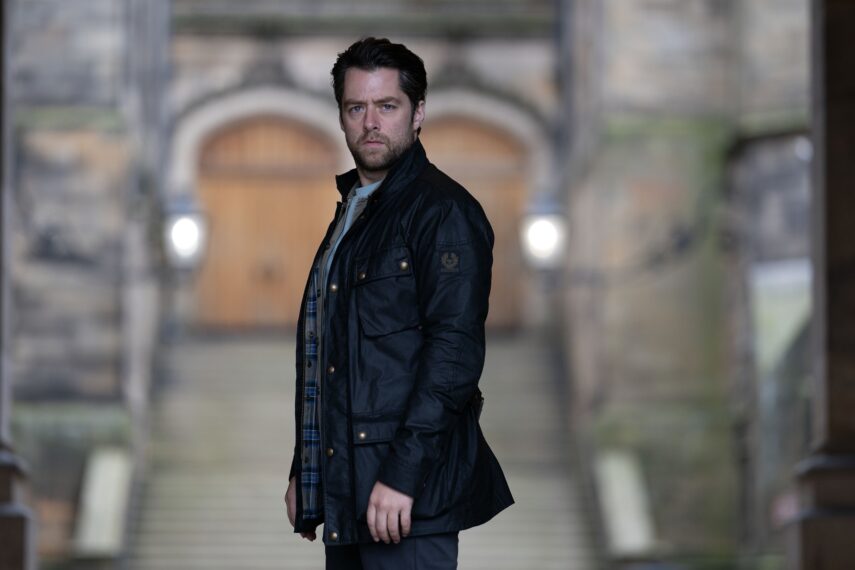
Viaplay
How much of a fan of the Rebus books were you before taking on this new role?
Richard Rankin: I’ve read a few over the years. When I got back into the books, I really loved them. I think Ian Rankin is a brilliant writer. The fact he has had between 25 and 30 novels of the same protagonist speaks volumes of the quality and the appetite for them. I would say I’m overall more into fantasy than I am in crime novels though.
Your dad being a policeman, how much did you take from his experiences with your approach?
I’ve played a couple of cops and detectives before. I think I’ve taken every bit of information I’ve got from him and his colleagues. Rebus is a different character than the ones I’ve played before, so a lot of the information and research came from the books. I had a great script, which was brilliantly written. I still had to dig a little deeper to get a flavor of this guy. I went through a few of the novels to build this character for myself.
You’re so known for Roger. How would compare the two characters? I know Rebus is not one of the most noble of guys.
They are worlds and decades apart. However, I approached the research the same way for each of them. It’s not often you have books as a resource. Not every show or script you get that comes along will be backed up by long-running extremely successful books. To have that as an actor, it’s a very fortunate thing. I’m grateful to have that to draw the characters from. Then I know what people expect and read about them. Their ideas of the characters. It’s all something infinitely valuable to have. The character development was probably much of the same.
Did you see this as an opportunity to show another side?
Versatility is very important to me. That opportunity to show range is very important to me. I don’t want to do the same thing over and over. Not that it’s necessarily a negative thing, but the chance to play something different is welcome. In each of the seasons of Outlander and almost every one of our hiatuses, I’ve found a great BBC project or was doing theater or my own thing. I’ve always felt doing that to keep things fresh and new for myself. I don’t know I had the idea coming out of Outlander that I would necessarily need an outlet to show that. I think it just presented itself.
Timing is everything.
I think so. Although I think it would have happened anyway. I am selective about the things I go out for and accept. I think I have an idea of how I want to proceed. Rebus certainly gave me a huge opportunity for that. I think there was a lot required of me.
I’d say. There is a lot of emotional depth and complexity with Rebus.
It’s hugely complex. The characters, the story, the protagonist himself. It required a lot of commitment to bring who I feel is the complex man to the screen.
He is definitely flawed. He wants to do the right thing, but things get muddled even more with his brother involved. How would you describe the journey Rebus takes this season?
I’m not sure he wants to be noble. I think he does want to do the right thing. I think a sense of justice is weirdly sort of important to Rebus. Whether or not he thinks that or even believes it, I think it’s about whatever means necessary to have a just outcome. That’s not necessarily in line with the law or what’s conventionally right. I think Rebus has an idea of what’s right. We see that when we talk about the rules and the law. There are rules and antiquated ideas. They talk about how blood is thicker than water and eye for an eye. You hit me, I’ll hit you worse.
That comes from a very old-world way of thinking. I think it’s one he employs. The relationship with the criminal world of Edinburgh. The if you hurt me, I’m not necessarily going to stay in the realms of the law to get back at you. I may do something much worse. He has that capacity. I think he employs that on a number of occasions. That says to me he is not noble but willing to do what he needs to do for a just outcome. I think that what brings an element of complication to the man. I don’t even know he wants to be that way. He doesn’t appreciate the modernization of the police force.
Not a big lover of technology.
He doesn’t like iPads. A certain part of his mentality is old school, but I think it makes the guy a little more fascinating.
The first scene of the first episode kind of drives home everything you said. It also sets the stage for what’s to come. He lets his emotions get the better of him with Cafferty. There are certainly universal themes that viewers outside of Scotland can pull from like class where this person lives in this part of town and that person lives in that part of town.
That was an important point to pick up on because that was a deliberate choice to have that sort of line. The line or divide between the wealthy and potential upper class of Edinburgh and working-class contract. What the line is between them? What is the political line between them as well? What it means to live in each different place. Do we care about these people or is it a matter of where things are occurring? I think what is quite clever about the writing Gregory Burke brings that sort of political landscape. I think he has good social commentary. It’s so heightened with Rebus’ actions front the start.
The show has garnered acclaim. How is it to see the show resonate like it has already?
I’m very proud and satisfied. It’s one of those things when you see conception become reality. Certainly, things were important to me and I don’t know if I would have done without them, When I was presented the role, there was a mood board, and how [director] Niall MacCormick saw it being shot…One can often compromise and it doesn’t end up being the concept you started with. It didn’t happen with Rebus. What we shot is what he showed me. I was very happy we got to make, aesthetically and otherwise, the show we wanted to make.
This premieres in the States shortly before Outlander returns with the second half of Season 7 and the last season next year. With filming wrapped, how do you feel about the show ending?
It was such a big part of our lives for up to a decade. It has always been this constant. We don’t really question it until it’s gone. Now that it is gone, it feels missing in a weird way. I think it feels strange. It’s like part of you isn’t there anymore. I don’t think it has sunk in yet for many of us because we’ve always had to go back to it. Now it’s not going to be there again. It leaves a void I’m sure we’ll feel. It leaves the potential for other things. Without sounding cliche, it really does lead to a new chapter for me. We film that show for nine or 10 months out of the year. Sometimes the whole year. That has happened. That leaves you with little time to do other things. Maybe six or five-episode miniseries or theater work, but you are primarily engaged in that show. There is not the prospect of going out and doing another big show.
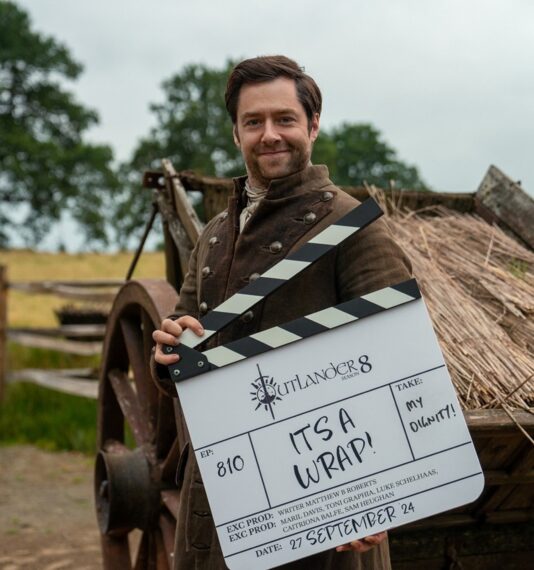
Richard Rankin wraps filming on ‘Outlander’ Season 8 (Starz)
Like Rebus?
Rebus was a godsend. There were challenges to being able to do it. Don’t get me wrong. It was quite a battle at points to be able to free up the time and fit it in. It was a godsend. To find another long-running TV show was not an option at any point for any of us. Now that option is there. We’ll see what happens.
Anything you took from that last day on set?
I was in that mode. What can I take? Then there was nothing I wanted to take. I could have taken costumes. That would have been lovely because I have some great coats this season. I thought what would I do with them? I’ll hang them up and sit there forever. Nothing I needed to take.
What do you want to tease for fans as Outlander comes back and that last season for Roger and Bree?
I won’t talk about eight. That’s too far away. Come on Scott! Season 7, I think the second half is some of the best Outlander has ever been. I think a lot is going on. I think all of our storylines see the characters on great big adventures. I think fans are going to love it.
Do you see Season 2 of Rebus?
I think there is endless potential for Rebus. It comes from its own universe. It’s such a hugely detailed world. You can do anything with it. I don’t have the imagination that Greg does, but he would come up with something good for us.
Rebus U.S. premiere, November 7, Viaplay U.S. streaming service (add-on subscription on Prime Video Channels).
From TV Guide Magazine
How Hulu's 'Mid-Century Modern' Is a 'Golden Girls' for Our Times
Settle in for some older and bolder laughs with the BFFs of a certain age in the new comedy starring Nathan Lane, Matt Bomer, and Nathan Lee Graham. Read the story now on TV Insider.


